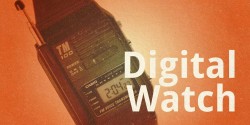Just under eleven months ago pioneering internet radio station East Village Radio shut down after eleven years of operation. Station CEO Frank Prisinzano cited the costs of royalty payments and internet service as making it difficult for East Village Radio to even break even.
Now, the station is poised for a comeback, promising a return to the internet airwaves this month. This time around East Village Radio has the backing of an internet radio startup called Dash Radio. According to a recent Wired feature, Dash is the brainchild of former Los Angeles radio DJ Scott Keeney a/k/a DJ Skee who has the backing of funders like Epic Records CEO L.A. Reid, and even East Village Radio co-founder Peter Ferraro.
Dash has been broadcasting since last August and now serves up 56 stations that don’t look different from the kind of music offerings on SiriusXM, with ones dedicated to genres like funk, classic rock, electronica or hair metal, along with more eclectically curated stations like Odd Future Radio. Dash also will carry a Record Store Day station timed for that annual vinyl celebration on April 18.
Dash is available free on the web and through smartphone apps. The service is also commercial-free. That begs the question of exactly how Dash intends to generate revenue for its investors. I understand that there is or will be paid access to program archives, but I saw no sign of it on the web version. As a listener I won’t complain, though it begs yet another question of how long Dash and its stations–like East Village Radio–can serve listeners for free without some kind of commercial support.
Open Internet Lawsuits Go to the D.C. Circuit
The first lawsuits challenging the FCC’s new Open Internet Order were filed two weeks ago. Because they were filed in two different Appeals Court districts, there was a lottery held to decide which court will hear the cases. The winner turned out to be the D.C. Circuit Court of Appeals, right in the Commission’s back yard.
On its face this seems like a technicality, but the venue can have real consequences for any appeals case. Some circuits are regarded to lean more liberal or conservative, for instance. Not unsurprisingly, the D.C. Circuit tends to be a little deferential to government agencies, yet leans conservative.
In fact, the D.C. Circuit struck down the FCC’s previous Open Internet rules. That might look like a strike against the Commission in defending the new Order. However, with these new rules the FCC was pretty much following the instructions of the Court, which rebuked the Commission for having taken such pains to avoid Title II last time around.
Still, there’s a good chance that the D.C. Circuit won’t hear these challenges. That’s because, as I noted earlier, the suits were probably filed prematurely. In general regulatory orders are not open for legal challenges until they are published in the Federal Register–something that has yet to happen. Of course, it will be up to the First Circuit to determine if the suits will proceed or be dismissed. If they are dismissed, then the venue selection process will start over again when the next round of suits are inevitably filed.



